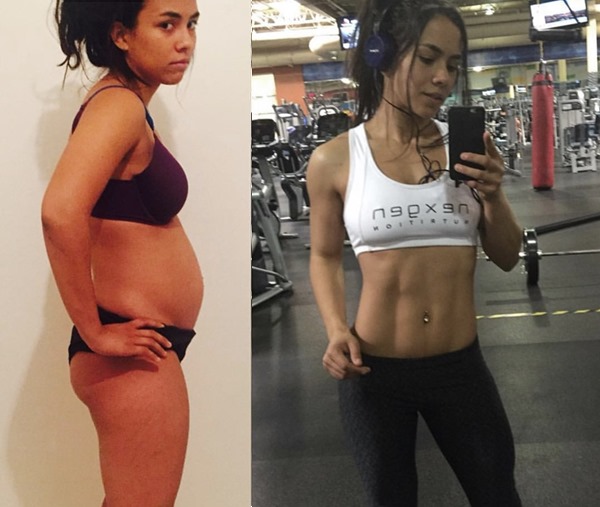When California Gov. Arnold Schwarzenegger uttered the phrase “girlie men” at a September press conference, he probably didn’t realize it aptly describes a growing epidemic.
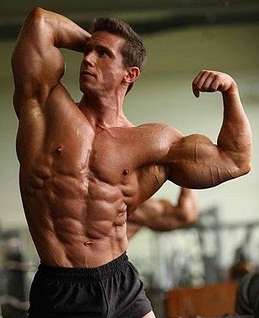 “A surprising number of men even fit-looking men suffer from testosterone levels that are too low and estrogen levels that are too high,” says Larrian Gillespie, MD, a retired Beverly Hills urologist and author of The Gladiator Diet. Stress, inactivity and smoking can all lead to low T levels, but eating the wrong foods is testosterone’s No. 1 enemy.
“A surprising number of men even fit-looking men suffer from testosterone levels that are too low and estrogen levels that are too high,” says Larrian Gillespie, MD, a retired Beverly Hills urologist and author of The Gladiator Diet. Stress, inactivity and smoking can all lead to low T levels, but eating the wrong foods is testosterone’s No. 1 enemy.
Bottom line: Eat the following 10 foods to boost your testosterone, and your muscles will grow bigger and harder. It’s that simple.
1) Oysters
What’s Inside:
Protein, magnesium, lots of zinc
The Facts:
Along with increasing your physical endurance, oysters pack more zinc than almost any other food source just six gives you almost seven times the RDA and zinc plays a key role in muscle growth and testosterone levels.
How To Get It:
Eat a serving of oysters once a week, raw, cooked or canned but preferably not fried.
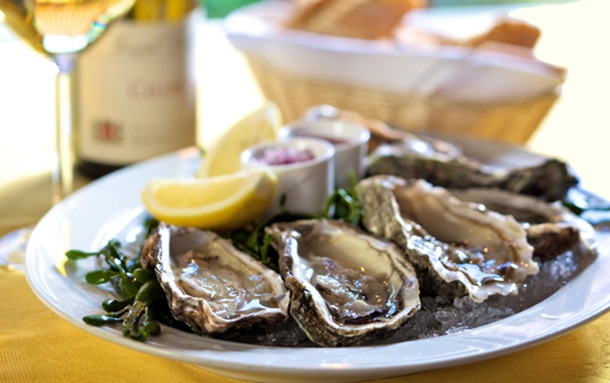
2) Lean Beef
What’s Inside:
Protein, iron, magnesium, zinc, saturated fat
The Facts:
“Few things have as positive an impact on testosterone levels as lean meats,” says Gillespie. Beef specifically offers the added benefit of high protein and zinc two nutrients key to optimizing testosterone and muscle-building potential in one source. And while you don’t want too much saturated fat in your diet, you require some to produce testosterone.
How To Get It:
Grill or broil a lean cut of steak a few times a week.

3) Beans
What’s Inside:
Protein, fiber, zinc
The Facts:
Beans are indeed the magical fruit … but not for that reason. Beans pack a bigger shot of zinc than any other member of the veggie family; some (like baked beans) even rival the zinc content of red meat. Add that to a food that’s high in protein and fiber and low in fat, and you have a winning combo.
How To Get It:
Baked beans, lima beans, navy beans and kidney beans are all good choices. Canned versions are as nutritious as dry.

4) Poultry
What’s Inside:
Protein and little fat
The Facts:
“High-protein diets have a positive impact on muscle mass and thus testosterone levels,” says John E. Morley, director of the Division of Geriatric Medicine at St. Louis University. “And high fat seems to have the opposite effect.” So while chicken and turkey lack high zinc levels, their protein-to-fat ratios make them important to your diet.
How To Get It:
Roast or grill skinless, boneless portions of turkey or chicken several times a week. Or choose chicken meat balls and turkey cold cuts for lunch.
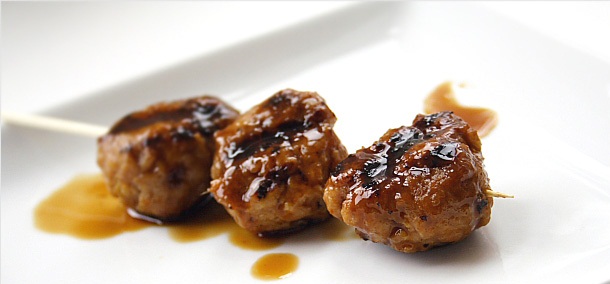
5) Eggs
What’s Inside:
Protein and cholesterol
The Facts:
“Testosterone is synthesized from cholesterol, and as such, food containing cholesterol is a good source of building blocks for testosterone,” says Robert S. Tan, MD, an associate professor of geriatric medicine and an andrologist at the University of Texas in Houston. Eggs are a source of pure, unadulterated cholesterol, and one recent study showed that the excess cholesterol in eggs isn’t as harmful as previously thought. So stock up on whole eggs (unless otherwise instructed by your physician).
How To Get It:
Start your day with 3-4 whole eggs cooked in olive oil or fat-free cooking spray.
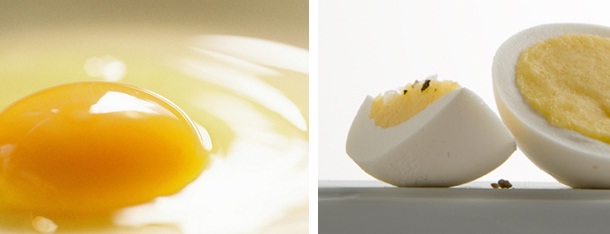
6) Cottage Cheese (1% Milk Fat)
What’s Inside:
Protein with very little fat
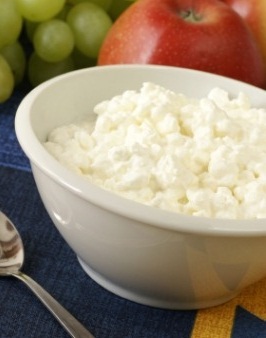 The Facts:
The Facts:
One cup of 1% cottage cheese has more protein and less fat than a serving of lean beef or chicken. Have it as a snack or with a meal for testosterone-boosting potential.
How To Get It:
Eat 1 cup of cottage cheese each day.
7) Broccoli
What’s Inside:
Indole-3-carbinol, fiber
The Facts:
“Elevated estrogen levels lead to fat accumulation and can interfere with muscle growth,” says M & F contributor Chris Aceto, author of Championship Bodybuilding. In a clinical study, indole-3-carbinol cut the largely female hormone estradiol in half for men. “Broccoli contains high levels of indoles, food compounds that help reduce bad estrogen,” adds Aceto.
How To Get It:
Eat as many servings of broccoli as you can stomach.
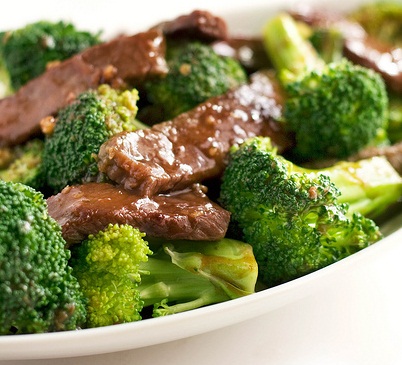
8) Cabbage
What’s Inside:
Indole-3-carbinol, fiber
The Facts:
In addition to exhibiting the same estradiol-restricting properties as other cruciferous vegetables, cabbage is high in fiber. “Fiber is great for controlling weight, as it prevents the consumption of fattier foods,” says Gillespie. “Keeping weight down has an anti-estrogen impact.”
How To Get It:
Load up that fat-free brat with sauerkraut and have a side of slaw just go easy on the mayo.
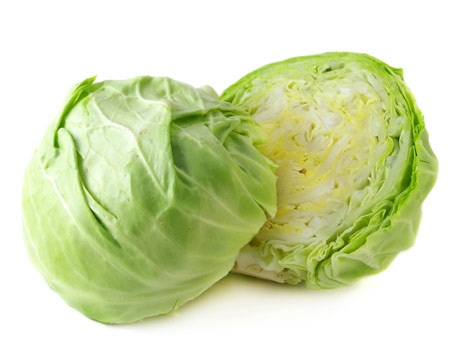
9) Brussels Sprouts
What’s Inside:
Indole-3-carbinol, fiber
The Facts:
You should have listened to your mom: Brussels sprouts do help you grow up big and strong. Like the other vegetables on our list, these specifically target bad estrogen and pack just as much fiber.
How To Get It:
Hold your nose and power them down.
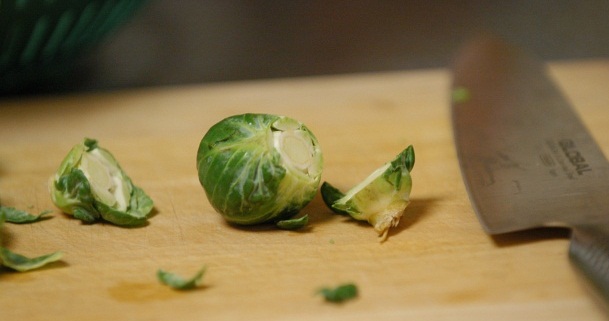
10) Garlic
What’s Inside:
Allicin
The Facts:
In clinical studies, garlic’s active ingredient enhances testosterone levels and inhibits cortisol, a hormone that competes with testosterone, limiting its actions and breaking down muscle tissue.
How To Get It:
Season other foods with garlic when you can, but eating whole cloves provides the most direct benefit.
The Basics On How To Eat For A Huge Testosterone Boost
Stick to the ratio
According to Gillespie, “Men should aim for 45% of calories from protein, 35% from carbs and 20% from fats.” As you put daily menus together, these numbers will help you maintain this diet.
Avoid high-glycemic carbs
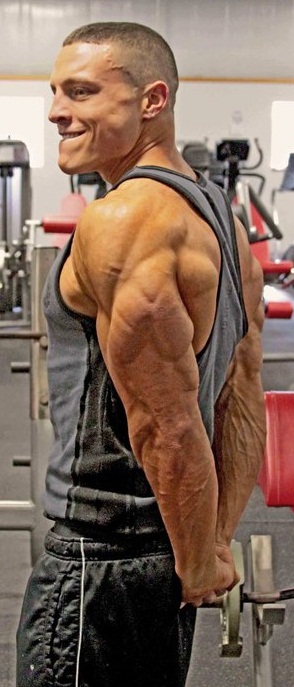 Gillespie notes that carb-rich foods high on the glycemic index can negatively affect your testosterone level.
Gillespie notes that carb-rich foods high on the glycemic index can negatively affect your testosterone level.
Think protein & fats
High-protein and moderate-fat foods are crucial for enhancing testosterone and, as a result, building muscle. Make these foods the building blocks of your diet.
Eat oysters when you can
This may be the hardest food on the list to obtain but, as Aceto puts it, “Oysters are the original testosterone booster.” Many restaurants and grocery stores have them available.
Pick the right main courses
Keep this in mind, and the road to sound meal planning should be clear: Choose protein over carb-loaded dishes.
Add the right sides & snacks
Select snacks and side dishes the same way you would main courses. For example, pick beans and broccoli over carrots. Changes like these are simple and easy to make.
Author: Wyatt Myers
References:
http://www.muscleandfitness.com/
http://www.flexonline.com/
COPYRIGHT 2010 Weider Publications
COPYRIGHT 2010 Gale Group






